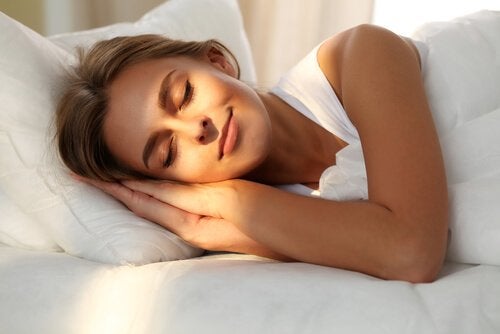Why do I need to sleep for the body to function?It is reasonable to expect the body to need a quiet period of rest and relaxation to revitalize.
However, several arguments suggest that this is not the full explanation, for example, most people sleep between eight and nine hours a night, but there is great variability among individuals, some people only need three hours of sleep.
- Sleep needs also vary throughout each person’s life.
- As people get older.
- They usually need fewer and fewer hours of sleep.
If sleep played a unique body restoration function, it would be difficult to understand why older people need to sleep less than younger people.
In addition, people who participated in sleep deprivation experiments showed no lasting effects. These experiences involve keeping them awake for periods of up to 200 hours at a time.
People who experience these experiences experience fatigue, lack of concentration, irritability, decreased creativity and tendency to experience hand tremors while staying awake, however, when they can sleep, they quickly return to normal conditions.
Sleep is a biological necessity that allows you to restore essential physical and psychological functions for optimal performance. Sleep and wakefulness are brain functions and are subject to changes in the nervous system.
During sleep hormonal, biochemical, metabolic and temperature changes occur, all these changes are necessary for the proper functioning of the human being during the day.
Researchers have discovered that sleep is vital for us to learn, that it is closely related to the nature weather map and is of crucial importance to health; however, it is not yet clear what its role is.
The most accepted research relates sleep to body tissue repair and energy retention and recovery. It is also associated with memory consolidation and maintenance. When we sleep, our brains “repair themselves. ” It’s like taking him to a workshop.
There are two mechanisms or processes identified as sleep managers. The process? If determined by a person’s sleep and wakefulness history, it manifests itself in a greater propensity to sleep after sleep deprivation, it is something of a build-up of debt.
Jey is controlled by the endogenous biological clock and is independent of sleep and wakefulness history. We tend to sleep when the body temperature drops (first part of the night). You wake up when it increases (second part of the night).
Awakening, slow sleep and rapid sleep must necessarily occur in harmony to ensure a person’s health. The impact of sleep deprivation is widespread and affects not only the physical, but also the psychological.
Some of the effects of not sleeping are
As we see, sleep is necessary. At least it’s clear that if we don’t, there are many problems we can have.
In addition to being a great pleasure for many people, sleeping well has positive effects on our body, some experts consider that there are six beneficial effects of sleep.
Therefore, it seems clear that the benefits of sleep (especially if you sleep of good quality) are numerous and very important. In addition, lack of sleep has negative consequences that, in the long run, can be very harmful.

